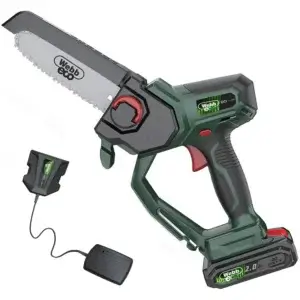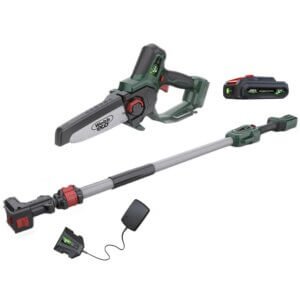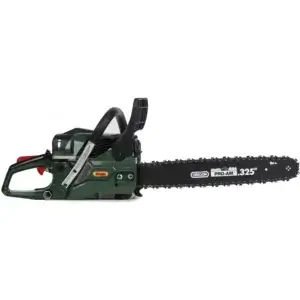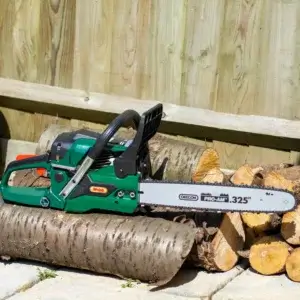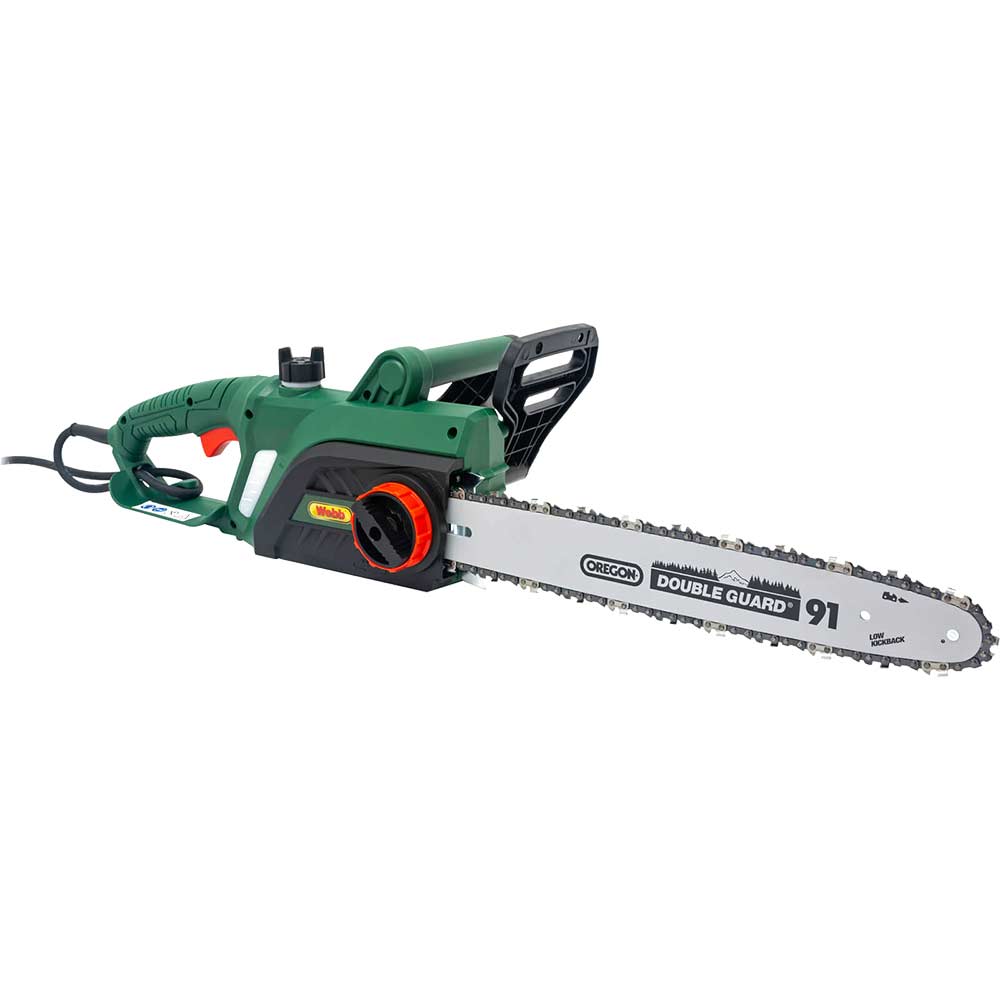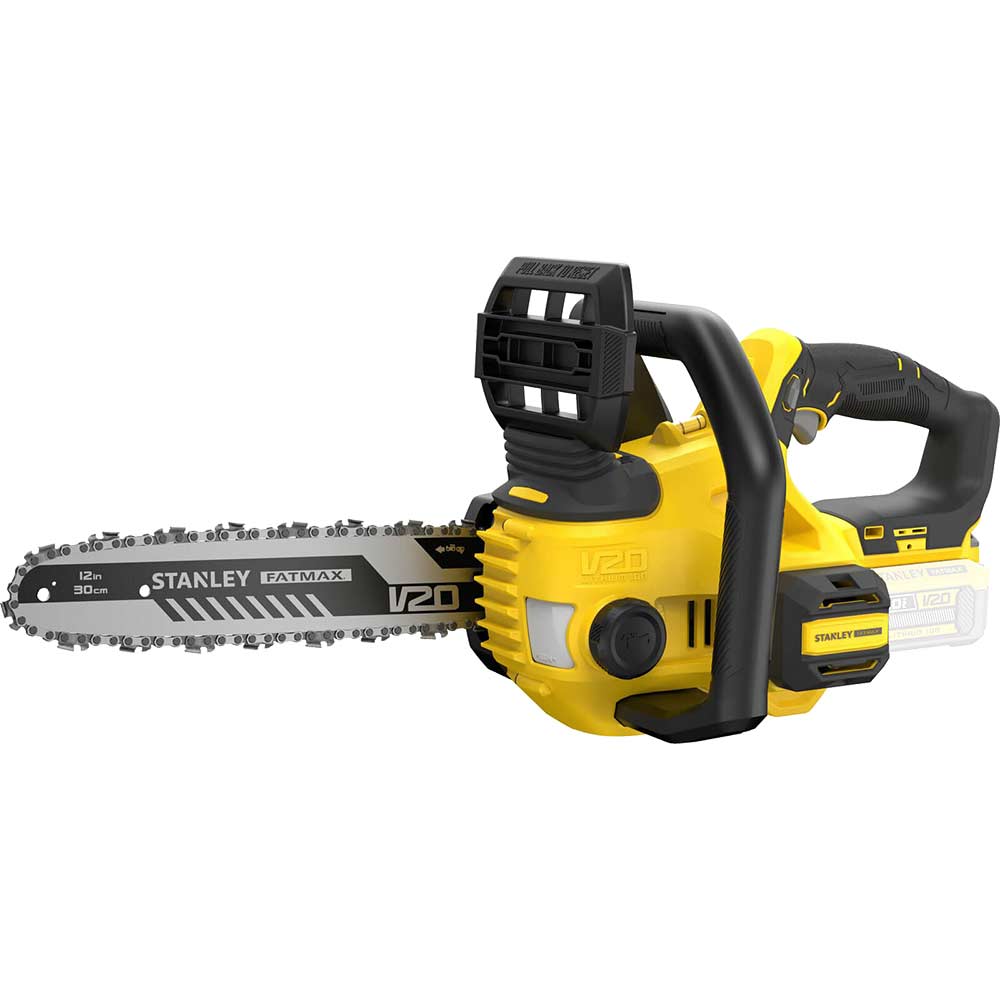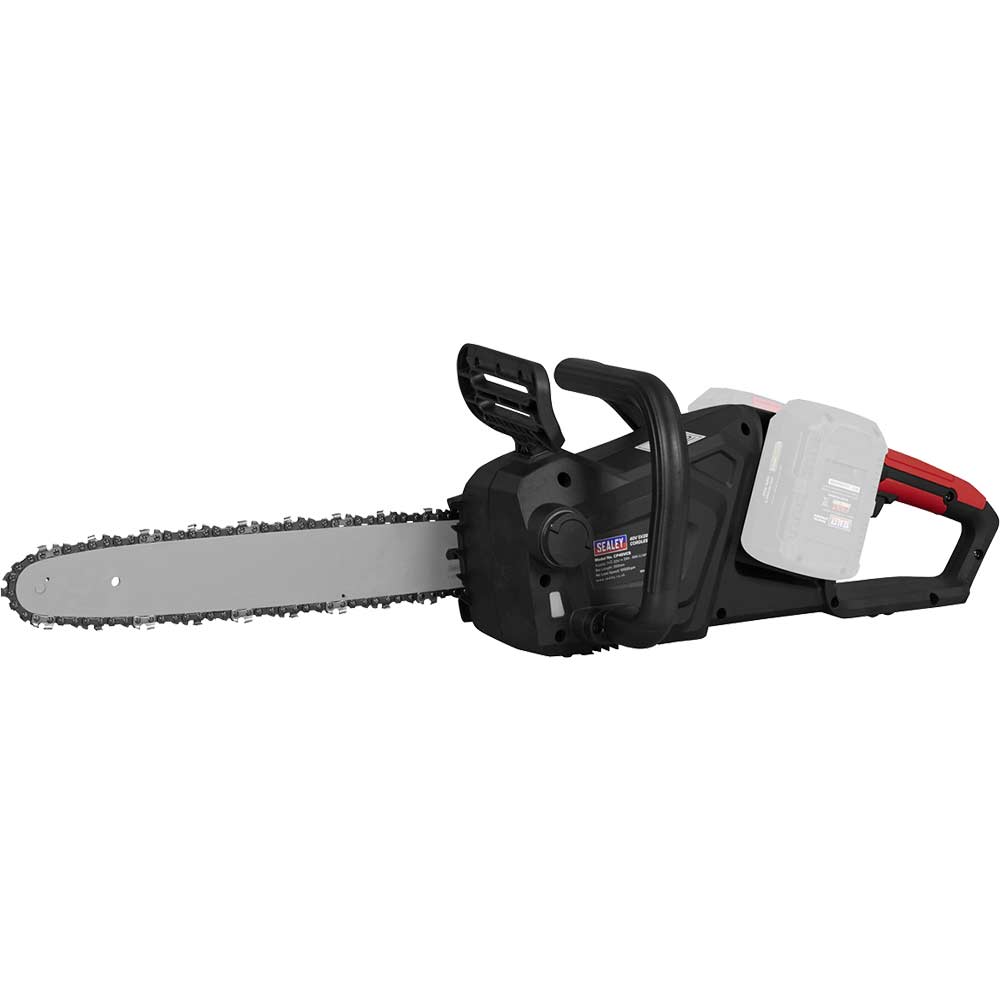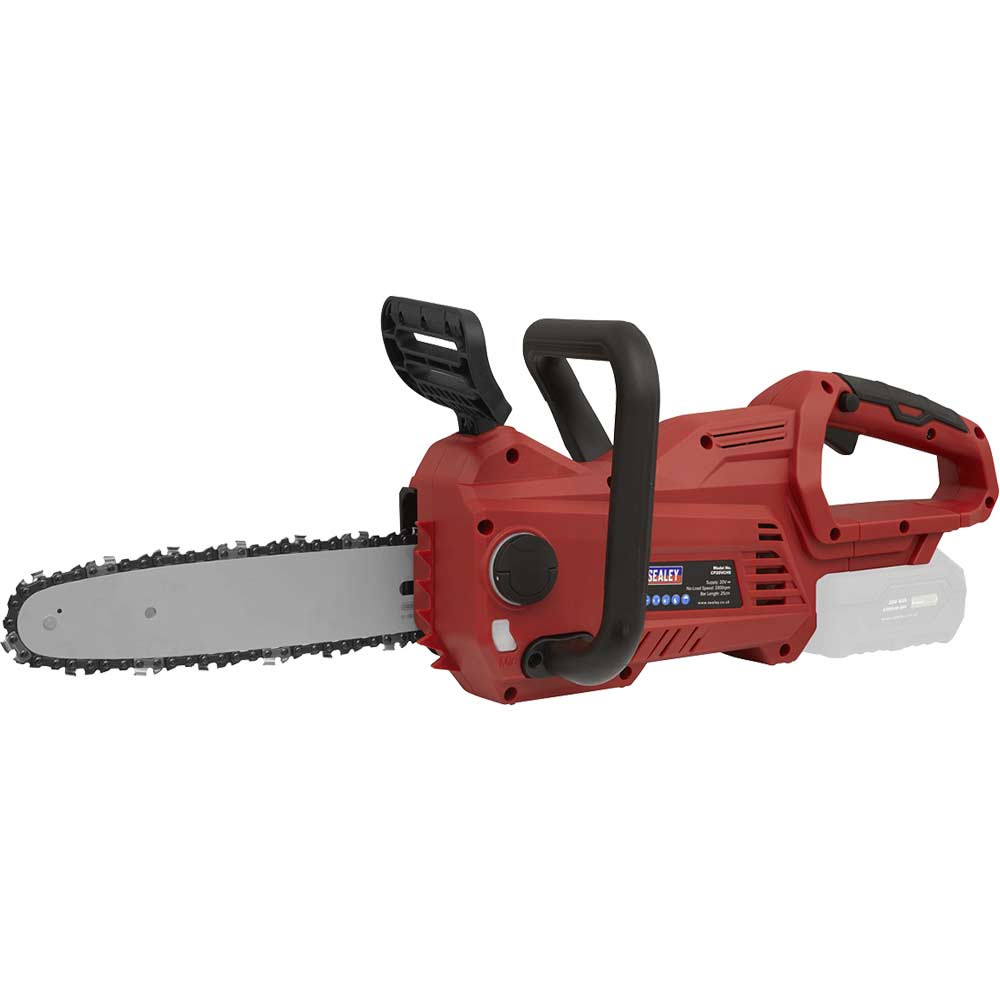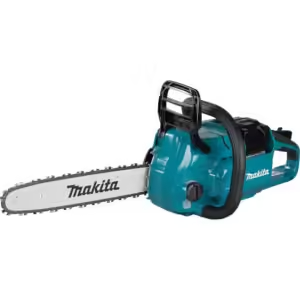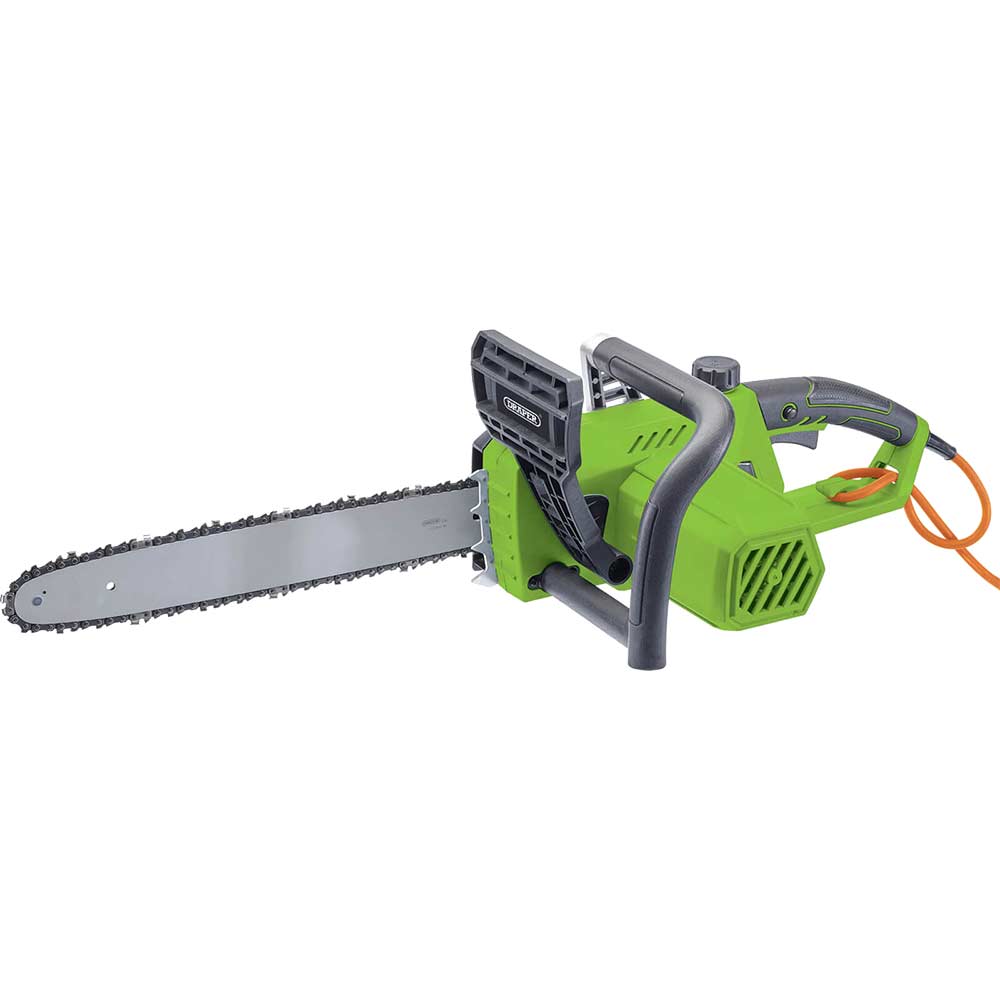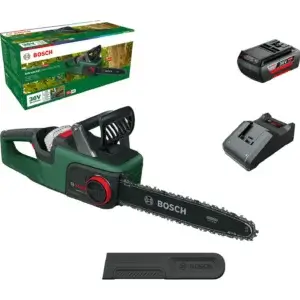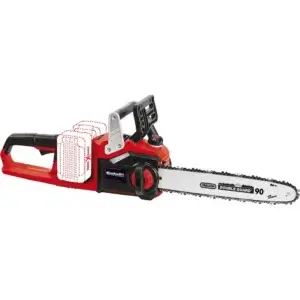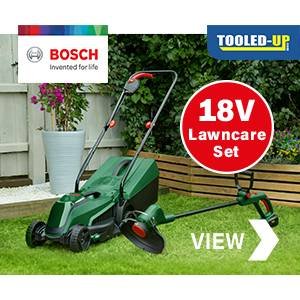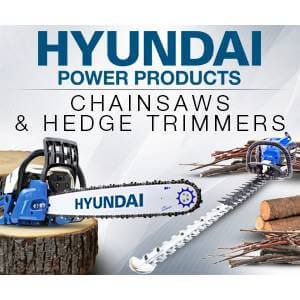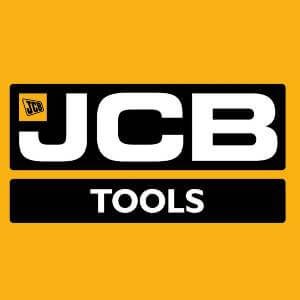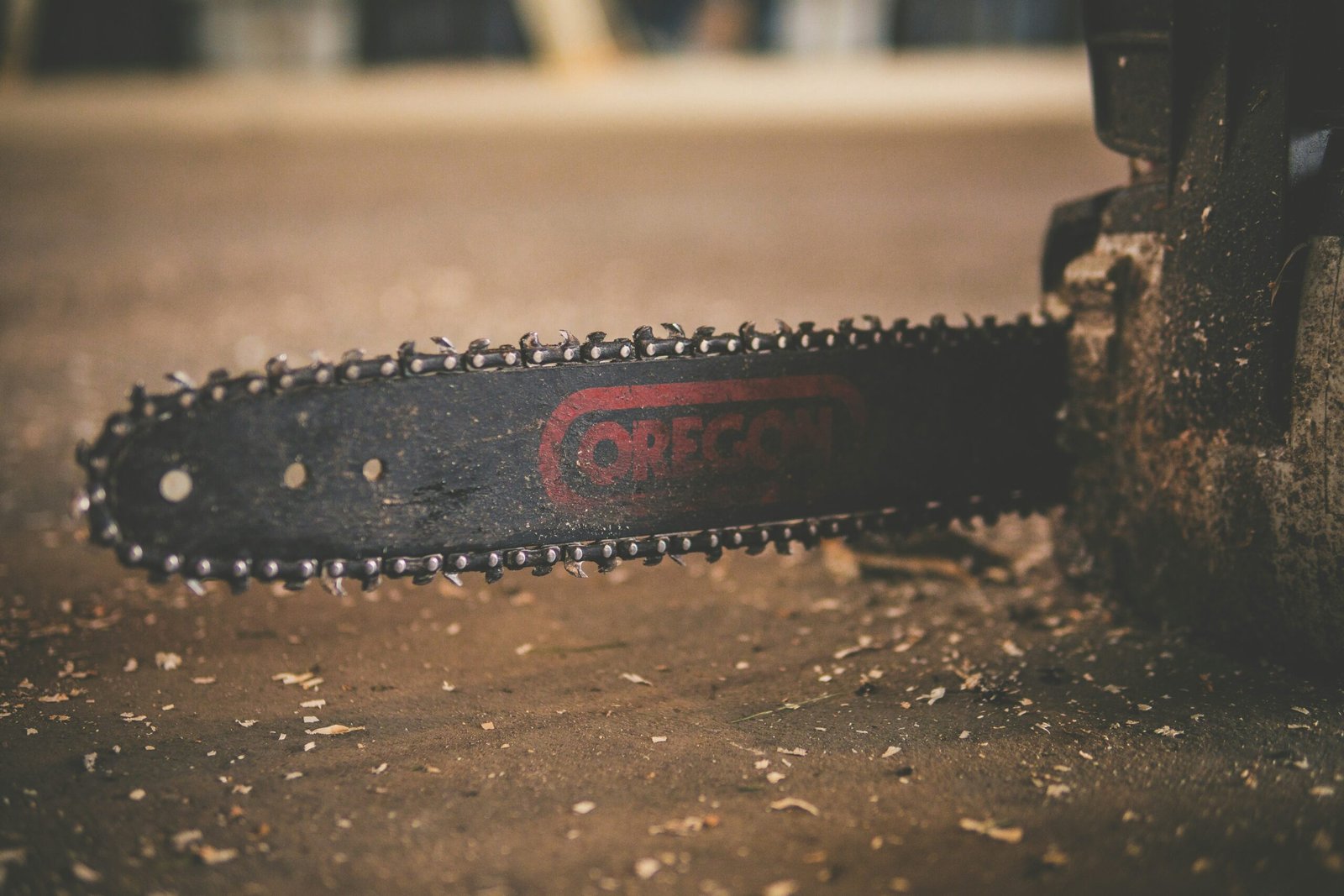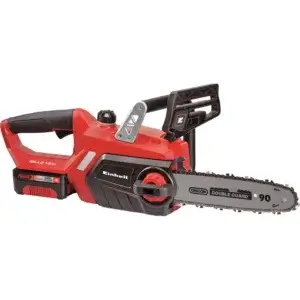When it comes to chainsaws, many gardeners and woodworking enthusiasts often find themselves torn between electric and petrol options. Which type will provide the best power without excessive noise? This article will compare performance, portability, and maintenance, helping readers understand the key differences. By the end, readers will know which chainsaw suits their needs, whether they are trimming lawn edges or tackling larger woodwork projects. This clear comparison aims to ease the decision-making process for anyone facing uncertainty about the right chainsaw choice.
Key Takeaways
- Electric chainsaws are ideal for light tasks and require minimal maintenance
- Petrol chainsaws excel in power, making them suitable for heavy-duty gardening projects
- Electric models operate quietly, reducing noise disturbances in residential areas
- Petrol chainsaws offer greater mobility without being tethered to a power source
- Choosing the right chainsaw depends on the specific gardening tasks and user preferences
Understanding Electric and Petrol Chainsaws

Electric chainsaws typically feature a lighter design and a cordless operation, making them ideal for trimming firewood and maintaining smaller yard tasks. In contrast, petrol chainsaws possess a powerful engine, delivering high performance for larger jobs but requiring more upkeep. This section will compare their operation, helping gardeners choose the right tool for their lawn and garden needs.
Features of Electric Chainsaws
Electric chainsaws are designed to provide convenience and ease of use, particularly for light to medium-duty tasks. They require minimal maintenance compared to petrol chainsaws, as there is no need for petrol or oil mixing. This makes them an excellent choice for home gardeners who may only use a chainsaw occasionally, allowing for quick start-up without the hassle of fuel preparation. petrol chainsaws
In terms of performance, electric chainsaws typically offer a steady level of torque, which is beneficial for tasks such as trimming branches or cutting firewood. While they may not match the sheer power of their petrol counterparts, advancements in technology have improved their efficiency, enabling users to complete jobs effectively without excessive vibration. This reduced vibration not only enhances comfort during operation but also minimises fatigue over extended use.
Another highlight of electric chainsaws is their lightweight design, making them easier to manoeuvre for various gardening tasks. With models that are battery-operated, users can enjoy the freedom of working without cords, providing greater flexibility in reaching remote areas of the garden. This feature is particularly appealing to gardeners looking to enhance their landscaping efforts without being tethered to a power source.
Characteristics of Petrol Chainsaws
Petrol chainsaws are known for their powerful performance, making them ideal power tools for heavy-duty tasks such as cutting large trees and thick wood. With robust engines, these tools provide significant torque that allows users to prune and fell trees with ease. Gardeners often prefer petrol chainsaws when tackling demanding gardening projects, particularly when using a mower or during land clearing operations.
Another characteristic of petrol chainsaws is their mobility. Unlike electric models, petrol chainsaws do not require a power outlet or extension cords, offering greater flexibility for outdoor work. This feature is especially advantageous in large gardens or rural areas where access to electricity may be limited, allowing gardeners to operate freely across various terrains.
However, the heavier weight and maintenance requirements of petrol chainsaws cannot be overlooked. Users must regularly check oil levels, fuel mix, and air filters to ensure optimum performance. This buying guide, which highlights the pros and cons of petrol chainsaws, can help gardeners make informed decisions tailored to their gardening needs:
| Feature | Petrol Chainsaws | Electric Chainsaws |
|---|---|---|
| Power | High performance for heavy-duty jobs | Suitable for light to medium tasks |
| Portability | Highly portable without cords | Limited by cord length unless battery-operated |
| Maintenance | Requires regular upkeep and fuel preparation | Minimal maintenance required |
| Weight | Generally heavier than electric models | Lighter and easier to handle |
Comparing How They Operate
When comparing how electric and petrol chainsaws operate, it is evident that their power sources influence their functionality. Electric chainsaws use a motor that runs quietly and efficiently, often allowing for easy operation in residential areas. These saws typically feature a brush motor that offers various power levels, enabling gardeners to cut through branches and construction debris up to a certain size with precision and ease.
On the other hand, petrol chainsaws rely on fossil fuel, providing substantial power for heavy-duty work. Their internal combustion engines generate the torque needed to tackle larger jobs, such as felling thick trees or cutting through challenging brush. This capability makes them the preferred choice for gardeners engaging in extensive outdoor projects, where strong cutting performance is essential.
Another aspect to consider is the operation and maintenance of both types of chainsaws. Electric models often eliminate the need for chaps, which are protective garments worn to shield against chain saw injuries, since they are generally lighter and easier to manage. In contrast, petrol chainsaws require more upkeep, including regular checks on fuel mix and engine components, ensuring optimal operation during demanding tasks. Electric models often eliminate the need for chaps, which are protective garments worn to shield against chain saw injuries, since they are generally lighter and easier to manage.
Performance and Power Comparison

Evaluating cutting power is crucial when choosing between electric and petrol chainsaws. Electric chainsaws, often measured by voltage and wattage, are suitable for lighter tasks, while petrol chainsaws excel in heavy-duty applications, making them favoured by lumberjacks. This section will discuss the handling of different tasks and how speed and efficiency impact the overall performance of each chainsaw type.
Understanding the operational differences related to cutting power, task suitability, and work speed helps gardeners make informed decisions. Each chainsaw offers distinct advantages, ensuring users select the right tool for their needs.
Evaluating Cutting Power
When evaluating cutting power, horsepower is a critical factor to consider. Petrol chainsaws typically boast higher horsepower, making them suitable for heavy-duty tasks such as cutting lumber or felling large trees. Electric chainsaws, while convenient for light to medium tasks, often have lower horsepower, which can limit their effectiveness during extensive projects.
Another important aspect is the presence of a brake system in both types of chainsaws, enhancing safety during operation. A chainsaw equipped with a reliable brake can quickly halt the chain’s movement in case of kickback, reducing the risk of accidents for the user. This is essential for both electric and petrol models, but especially valuable for those working in gardens where control and safety are paramount.
Ultimately, the decision between petrol and electric chainsaws also hinges on the logistical aspects of usage, like the need for an extension cord. Electric chainsaws, while easier to handle and maintain, require a power source, which may limit mobility in larger areas or remote gardens. Petrol chainsaws eliminate this concern, as they function independently, providing power where it is needed without the constraints of electricity. For more details, consider exploring different chainsaw options.
| Feature | Petrol Chainsaws | Electric Chainsaws |
|---|---|---|
| Horsepower | Higher horsepower for heavy-duty tasks | Lower horsepower, suitable for light to medium tasks |
| Brake System | Often includes a reliable brake system | Also features a brake for safety |
| Mobility | Fully portable; no need for an extension cord | Requires an extension cord unless battery-operated |
Handling Different Types of Tasks
When considering electric and Petrol chainsaws for handling various gardening tasks, it is essential to understand how each is suited for specific jobs. Electric chainsaws are often better for lighter home improvement tasks, such as trimming small branches or cutting firewood for personal use. Their ease of use and quieter operation make them an ideal choice for homeowners looking to maintain their gardens without disturbing the neighbours.
In contrast, Petrol chainsaws excel in demanding scenarios, such as felling larger trees or clearing dense brush. Their powerful engines provide the necessary torque to tackle significant jobs that electric models may struggle with. Gardeners who frequently engage in heavy-duty tasks will find that the portability and strength of Petrol chainsaws allow them to work in remote areas where access to power isn’t available.
Ultimately, the choice between electric and Petrol chainsaws hinges on the type of tasks a gardener expects to handle. For routine home improvement chores that require minimal gear, electric chainsaws offer convenience and efficiency. On the other hand, for those who require robust performance and mobility for larger projects, a petrol chainsaw may be the more effective solution. Understanding these differences helps gardeners make informed choices aligned with their specific needs and maintenance preferences.
Speed and Efficiency in Work
Speed and efficiency are critical considerations when selecting between electric and petrol chainsaws. Electric chainsaws typically provide quicker start-up times, enabling users to begin work almost immediately. This instant readiness is particularly beneficial for homeowners managing lighter tasks, such as pruning or trimming, where time may be of the essence.
Petrol chainsaws, on the other hand, excel in speed when tackling heavy-duty projects. The powerful engines contribute to faster cutting rates, allowing gardeners to complete more ambitious jobs in less time. For example, when felling a large tree, the increased torque available in Petrol chainsaws can significantly reduce the effort and time needed to achieve results.
Ultimately, the choice between electric and Petrol chainsaws will depend on the specific tasks at hand. For regular maintenance and smaller projects, electric models may suffice, ensuring efficiency without the need for extensive setup. However, for extensive land clearing or heavy-duty cutting, petrol chainsaws offer superior speed and effectiveness, allowing gardeners to work efficiently and meet their project deadlines.
Portability and Convenience Factors

When selecting between electric and petrol chainsaws, portability and convenience are critical factors. Weight and balance greatly influence ease of use, especially during prolonged tasks. Mobility in various environments is vital for accessing different gardening areas. Additionally, ease of starting and operation affects the overall user experience. These considerations will help gardeners determine which chainsaw best meets their needs.
Considering Weight and Balance
Weight and balance play significant roles in the usability of chainsaws, affecting how easily gardeners can handle their equipment. Electric chainsaws are generally lighter, making them easier to manoeuvre during extended use, which can be particularly beneficial for tasks such as trimming or pruning. This lightweight design can greatly reduce fatigue, enabling users to work for longer periods without discomfort. Karcher CS 400-36 battery chainsaw review
In contrast, petrol chainsaws, often heavier due to their powerful engines, can be more challenging to handle for some gardeners. However, many models are designed with features that improve balance, allowing users to maintain better control during cutting tasks. This balance is crucial when tackling larger projects, where stability directly impacts safety and performance.
Ultimately, gardeners must consider their own physical capabilities when evaluating weight and balance. A lighter electric chainsaw may be ideal for those new to chainsaw use or who need a tool for quick, less strenuous jobs. However, those engaged in larger or more demanding tasks may prefer the robustness and power of a petrol chainsaw, accepting the additional weight for enhanced performance.
Mobility in Various Environments
Mobility is a key consideration when selecting a chainsaw, especially in various environments. Electric chainsaws are often lighter and easier to manipulate, making them suitable for small gardens or tight spaces where manoeuvrability is essential. Gardeners working in urban settings with limited access to power sources may find battery-operated electric models particularly advantageous, allowing them to move freely without being tethered to power outlets.
In contrast, petrol chainsaws offer significant mobility in expansive outdoor environments. Without the need for an electrical outlet, these powerful tools can be used in rural areas or large gardens effortlessly. Gardeners tackling vast properties or remote locations appreciate the ability to navigate different terrains without worrying about cord length or battery life, as petrol chainsaws can operate continuously as long as there is fuel.
Understanding the impact of mobility on chainsaw choice helps gardeners make informed decisions. For those who primarily work in confined spaces or for shorter durations, electric chainsaws can provide adequate support and convenience. However, for extensive projects across varied landscapes, petrol chainsaws are often the preferred option due to their portability and powerful performance:
| Feature | Petrol Chainsaws | Electric Chainsaws |
|---|---|---|
| Portability | Highly portable; works anywhere without power | Limited mobility; needs an outlet or battery |
| Weight | Generally heavier; powerful but cumbersome | Lighter design; easier to handle |
| Terrain Suitability | Ideal for large gardens or rural environments | Best for urban and small-space applications |
Ease of Starting and Operation
Electric chainsaws typically offer superior ease of starting, requiring a simple push of a button or pull of a trigger to activate the motor. This immediacy makes them user-friendly, especially for those who may not frequently utilise a chainsaw. For garden maintenance tasks that demand quick action, such as trimming branches or cutting up firewood, this convenience is particularly valuable. For those interested in the variety of options, the electric chainsaws available might be worth exploring.
In contrast, petrol chainsaws often involve a more complex starting procedure, including priming the engine and pulling a starter cord. While many gardeners appreciate the robust performance of petrol chainsaws for heavy-duty tasks, the initial effort to get the tool running may deter some users. For those who prefer less hassle, electric models present a compelling alternative, allowing for uninterrupted work without the hassle of dealing with engine mechanics.
An additional benefit of electric chainsaws is their quieter operation compared to their petrolcounterparts. Reduced noise levels allow users to work in residential areas without disturbing neighbours, enhancing the overall gardening experience. Simplicity in operation, combined with minimal noise, creates an ideal scenario for homeowners focused on maintaining their gardens efficiently and effectively.
Maintenance and Upkeep Requirements

Proper maintenance is vital for optimal performance and longevity of both electric and petrol chainsaws. Caring for electric models involves straightforward tasks, such as keeping the blade sharp and ensuring the motor remains clean. In contrast, maintaining petrol-powered units requires regular checks of fuel mixtures and oil levels. Additionally, troubleshooting common issues can prevent substantial problems and enhance overall functionality, making it essential for users to understand these upkeep requirements.
Caring for Electric Models
Caring for electric chainsaws is relatively simple, making them a preferred choice for many gardeners. Regularly checking the power cord for any signs of wear or damage ensures safe operation, as a faulty cord can lead to electrical issues. Additionally, keeping the cutting chain sharp enhances performance, allowing for clean and effective cuts during garden maintenance tasks.
Another essential aspect of maintenance is cleaning the motor and air filter. This task helps prevent overheating and extends the lifespan of the chainsaw. Gardeners should also inspect the chain tension regularly, ensuring it is neither too loose nor too tight, to facilitate smooth operation and improve safety.
Lastly, storing the electric chainsaw in a dry place when not in use will protect it from moisture and prolong its usability. Maintaining a proper storage environment is crucial, as it prevents rust and other forms of damage. By following these straightforward maintenance tips, users can ensure their electric chainsaw remains in optimal condition for all gardening tasks: gardening tasks
| Maintenance Task | Importance |
|---|---|
| Check Power Cord | Ensures safe operation and prevents electrical issues |
| Sharpen Cutting Chain | Enhances performance for clean cuts |
| Clean Motor and Air Filter | Prevents overheating and extends lifespan |
| Inspect Chain Tension | Ensures safe and optimal operation |
| Proper Storage | Protects from moisture and prolongs usability |
Maintaining Petrol-Powered Units
Maintaining petrol-powered chainsaws requires regular attention to ensure optimal performance. Gardeners must check oil levels and fuel mixtures frequently, as improper ratios can lead to engine issues and reduced cutting effectiveness. It is advisable to use a fuel stabiliser, as this can help preserve fuel integrity and enhance engine reliability for longer periods of inactivity.
Another critical aspect of upkeep involves inspecting and cleaning the air filter. A clogged filter can hinder airflow, leading to decreased performance and potential overheating. Routine cleaning or replacement of the air filter will ensure the chainsaw operates efficiently and safely, giving gardeners confidence in reliability during use.
Additionally, petrol chainsaws should have their chains sharpened regularly to maintain cutting efficiency and safety. Dull blades force the engine to work harder, increasing wear and tear. By keeping the chain sharp, users can extend the saw’s life while making each task quicker and less labor-intensive: petrol chainsaws
| Maintenance Task | Recommended Frequency | Importance |
|---|---|---|
| Check Oil Levels | Before each use | Ensures proper lubrication and engine health |
| Inspect Air Filter | Every 5 uses | Prevents overheating and maintains airflow |
| Sharpen Cutting Chain | After every 5 hours of use | Enhances cutting efficiency and reduces engine strain |
| Fuel Mixture Check | Before each use | Ensures engine optimal performance |
Troubleshooting Common Issues
When using electric chainsaws, common issues often arise from power supply problems. If the chainsaw fails to start, the first step is to check the power source, ensuring that the cord is plugged in securely and free from damage. Regularly inspecting the power cord for fraying or cuts can prevent these problems and contribute to safe operation. For more insights and recommendations on electric chainsaws, considering a cordless chainsaw review might provide valuable information.
For petrol chainsaws, starting difficulties frequently stem from the fuel mixture. An improper fuel-to-oil ratio can lead to performance issues or prevent the engine from starting altogether. Ensuring the correct mixture and using fresh fuel will help maintain engine efficiency, making it easier to tackle demanding tasks in the garden.
Chain binding is another frequent issue that users encounter with both types of chainsaws, particularly during cutting. Gardeners should check for dull blades and proper chain tension to ensure smooth operation. Maintaining sharp cutting chains and adjusting tension as needed will enhance performance and prevent accidents while operating the chainsaw: chainsaws
| Issue | Electric Chainsaws | Petrol Chainsaws |
|---|---|---|
| Starting Problems | Check power supply and cord condition | Ensure proper fuel mixture |
| Chain Binding | Inspect blade sharpness and tension | Monitor chain sharpness and adjust tension |
Environmental Impact and Safety Considerations

When choosing between electric and petrol chainsaws, understanding their environmental impact and safety considerations is vital. Electric chainsaws produce zero emissions, making them eco-friendlier, while petrol models emit harmful pollutants. Noise levels vary significantly; electric chainsaws operate more quietly, reducing hearing damage risk. Additionally, safety features, such as chain brakes and low-kickback designs, should be prioritized for safe operation. These factors will guide gardeners in making an informed decision.
Emissions and Eco-Friendliness
When evaluating chainsaws, emissions and eco-friendliness are vital considerations. Electric chainsaws operate without producing harmful emissions, making them an environmentally friendly choice for gardeners concerned about their carbon footprint. In contrast, petrol chainsaws release pollutants into the atmosphere due to their combustion engines, contributing to air quality problems.
The eco-friendliness of electric chainsaws also extends to their energy efficiency. Many electric models are designed to consume less power while delivering adequate performance for light and medium tasks. This efficiency not only minimizes energy waste but can also lead to lower electricity bills, making them an economical investment for homeowners. For more details on models like these, consider exploring our cordless battery operated chainsaw options.
Moreover, using electric chainsaws can significantly reduce noise pollution in residential areas. Their quieter operation allows individuals to carry out gardening tasks without disturbing neighbours, addressing a common pain point for many gardeners. This aspect of electric chainsaws supports a more pleasant gardening experience, making them a preferred option for urban environments:
- Electric chainsaws produce zero harmful emissions.
- Petrol chainsaws emit pollutants, affecting air quality.
- Electric models are energy-efficient, reducing electricity costs.
- Quieter operation of electric chainsaws decreases noise pollution.
Noise Levels and Hearing Protection
Noise levels are a significant consideration when selecting between electric and petrol chainsaws. Electric chainsaws generally operate at reduced sound levels compared to petrol models, which often emit loud vibrations and sounds due to their powerful combustion engines. This quieter performance makes electric chainsaws particularly suitable for residential areas, where excessive noise can disturb neighbours and create conflicts.
Gardeners should be aware of the potential hearing damage caused by loud equipment. Petrol chainsaws can produce noise levels that exceed 100 decibels, prompting users to wear hearing protection to avoid long-term auditory issues. Consequently, individuals opting for electric models can enjoy quieter operation, allowing them to complete tasks without the constant need for ear protection, improving overall gardening experiences.
Moreover, the choice of chainsaw can affect not just the user but also the community. Reduced noise from electric chainsaws contributes to a more peaceful environment, making them an appealing option for gardeners who prioritise a serene backyard experience. With the availability of quieter tools, gardeners can work efficiently while being considerate of their surroundings:
| Chainsaw Type | Average Noise Level (Decibels) | Hearing Protection Required |
|---|---|---|
| Petrol Chainsaws | 100-120 dB | Recommended |
| Electric Chainsaws | 75-90 dB | Not always necessary |
Safety Features to Prioritize
When selecting a chainsaw, safety features are a critical consideration for both electric and Petrol models. Key features to look for include chain brakes, which stop the chain quickly in the event of kickback, significantly reducing the risk of injury. Users should also seek models equipped with low-kickback chains, which are designed to limit unexpected chain movement, enhancing overall safety during operation.
Another important aspect to consider is the presence of anti-vibration systems. These features reduce the amount of vibration experienced during use, improving comfort and control. For gardeners who may use their chainsaw for extended periods, less vibration can mean less fatigue, making it easier to handle the tool safely and effectively.
Finally, proper guards and protective features should not be overlooked. Hand guards can prevent accidental contact with the chain while working, offering an additional layer of protection. Gardeners should ensure that any chainsaw they consider has these essential safety features, as they play a vital role in both user safety and overall operational effectiveness.
Making the Right Choice for Your Needs

When selecting a chainsaw, gardeners must match the tool to their specific projects. Understanding budget and long-term costs is crucial in making an informed choice. This section will weigh the pros and cons of both electric and petrol chainsaws, providing valuable insights to guide users toward the most suitable option for their gardening needs.
Matching the Chainsaw to Your Projects
Selecting the right chainsaw often depends on the specific gardening tasks at hand. For routine maintenance and light to medium trimming, electric chainsaws are usually the ideal choice. Their lighter weight and ease of use make them perfect for gardeners who might only engage in occasional firewood cutting or branch trimming. For more detailed reviews and advice on selecting the right chainsaw for your needs, you might want to consider reading selecting the right chainsaw.
On the other hand, heavier tasks, such as felling large trees or clearing dense underbrush, necessitate the power that petrol chainsaws provide. The robust engines of petrol chainsaws deliver the torque needed for these demanding jobs, making them suitable for gardeners who frequently undertake extensive landscaping or forestry work.
Ultimately, the decision should also reflect the gardener’s physical capability and comfort level. For those who prefer a more leisurely gardening experience or have limited strength, electric chainsaws will offer ease of operation. Conversely, for skilled users familiar with larger machinery, petrol chainsaws can significantly enhance performance on tough projects.
Budget and Cost Over Time
When evaluating the budget for electric versus petrol chainsaws, upfront costs vary significantly. Electric chainsaws generally have a lower purchase price, making them more accessible for casual gardeners or those with limited budgets. However, it is essential to consider the long-term savings, as electric models typically require less maintenance and no fuel, reducing recurring expenses over time.
Petrol chainsaws often come with higher initial costs. Yet, their superior cutting power attracts professional gardeners or those engaged in demanding tasks. While users might incur higher maintenance expenses, such as fuel and oil, the efficiency of petrol chainsaws can justify these costs by enabling them to complete larger jobs in less time, ultimately saving labour costs for extensive landscaping projects.
Gardeners should also contemplate the total cost of ownership over the lifespan of the chainsaw. This involves factoring in both operational and maintenance expenses. For instance, owners of electric chainsaws will find their energy consumption is generally lower compared to the fuel used by petrol chainsaws, leading to significant savings for frequent users. Assessing both types of chainsaws in terms of long-term value will help gardeners make informed decisions aligning with both their budget and gardening needs.
Weighing the Pros and Cons
When weighing the pros and cons of electric and petrol chainsaws, it’s crucial to consider the specific needs of the gardener. Electric chainsaws offer ease of use, with lightweight designs and minimal maintenance required. They are excellent for small tasks such as trimming and pruning, making them a favoured choice for homeowners who perform light gardening duties.
On the other hand, petrol chainsaws shine in their capability to handle heavy-duty tasks. They provide immense power and portability, allowing users to tackle larger projects such as felling trees or clearing dense underbrush effectively. While they require more maintenance and involve a more complex starting process, many experienced gardeners find the effort worthwhile for the robust performance these tools deliver.
Ultimately, the choice between electric and petrol chainsaws comes down to the gardener’s preferences and the scale of the projects at hand. Electric models can be economical and user-friendly for occasional tasks, while petrol models may offer greater efficiency and power for more demanding jobs. Understanding these trade-offs is essential for making an informed decision that aligns with individual gardening needs:
| Aspect | Electric Chainsaws | Petrol Chainsaws |
|---|---|---|
| Ease of Use | Lightweight; minimal maintenance | Powerful; requires regular upkeep |
| Task Suitability | Best for light to medium tasks | Ideal for heavy-duty applications |
| Portability | Limited by cord unless battery-operated | Fully portable; no cords required |
Conclusion
Choosing between electric and petrol chainsaws significantly impacts gardening efficiency and safety. Electric models excel in convenience and maintenance, making them ideal for light tasks, while petrol chainsaws offer the power needed for heavy-duty jobs. Understanding the specific gardening needs helps users select the most suitable tool, balancing capability with ease of use. Ultimately, making an informed choice not only enhances gardening performance but also ensures safety and satisfaction in outdoor projects.
Electric vs Petrol Chainsaw FAQs
Q. Are electric chainsaws any good?
Electric chainsaws come with several notable benefits that make them a worthy option for many users. Firstly, they are typically lighter and easier to handle compared to their gasoline-powered counterparts, making them a popular choice among homeowners and hobbyists. Their quieter operation also makes them more suitable for residential areas, as they produce minimal noise pollution. Check out this Greenworks GD40CS15 cordless chainsaw review for a powerful and eco-friendly cutting solution.
Furthermore, electric chainsaws are known for their eco-friendly nature, as they do not emit harmful fumes like petrol chainsaws do. This makes them a sustainable choice for those who are conscious about their environmental impact. Additionally, electric chainsaws require less maintenance and are easier to start, saving users valuable time and effort. While they may have limitations in terms of power and cord length, advancements in technology have led to improved performance and battery life in modern electric chainsaws, making them a reliable tool for a range of cutting tasks. In conclusion, electric chainsaws are indeed a good option for those seeking a convenient, environmentally-friendly, and efficient cutting solution. electric chainsaws
Q. Who makes the best electric chainsaw?
To find the best electric chainsaw options and advice on their selection, you can visit the best electric chainsaw guide.
When it comes to determining who makes the best electric chainsaw, several factors must be taken into consideration. One of the leading manufacturers renowned for their high-quality electric chainsaws is Stihl. With a reputation for producing durable and efficient power tools, Stihl electric chainsaws are favoured by professionals and DIY enthusiasts alike. Their models combine reliable performance with innovative features, making them a top choice for those seeking a powerful cutting tool.
Another notable contender in the electric chainsaw market is Husqvarna. Known for their precision engineering and cutting-edge technology, Husqvarna electric chainsaws are designed for optimal performance and user comfort. With a wide range of models suitable for various applications, Husqvarna has established itself as a reliable choice for those in need of a dependable electric chainsaw.
Ultimately, determining the best electric chainsaw brand can be subjective and dependent on individual preferences and needs. Both Stihl and Husqvarna are reputable companies with a track record of producing top-quality electric chainsaws, making them popular choices among consumers looking for reliability and performance in their cutting equipment.
Q. What type of oil for electric chainsaw?
When it comes to maintaining and preserving the performance of an electric chainsaw, it is crucial to choose the right type of oil for lubrication. The most suitable type of oil for an electric chainsaw is bar and chain oil, specifically designed to reduce friction and heat buildup while also providing excellent adhesion to the bar and chain. This type of oil is formulated to withstand the high-speed operation of chainsaws, ensuring smooth and efficient cutting while prolonging the lifespan of the chain. How to select the best chainsaw oil and lubricants for your needs
Using the correct oil for an electric chainsaw is essential for proper maintenance and operation. Substituting with other types of oils, such as motor oil or vegetable oil, can lead to premature wear and damage to the chain and bar. It is recommended to always use high-quality bar and chain oil that is specifically designed for chainsaw use to ensure optimal performance and longevity of the equipment. Regularly checking the oil levels and refilling as needed is also important to prevent dry cutting, overheating, and potential damage to the chain and bar. By following these guidelines and using the appropriate oil, electric chainsaw users can enjoy reliable and smooth operation for their cutting tasks.
Q. What is the best small electric chainsaw?
When it comes to finding the best small electric chainsaw, quality and functionality are paramount. A professional looking for a reliable tool with precise cutting capabilities would be wise to consider factors such as power output, ease of handling, and safety features. The Q small electric chainsaw stands out as an excellent choice in this regard.
One of the key advantages of the Q small electric chainsaw is its impressive power-to-weight ratio, making it easy to handle and manoeuvre with precision. This is particularly beneficial for professionals who require a tool that is not only efficient but also comfortable to use over extended periods. The ergonomic design of the Q chainsaw ensures minimal strain on the user, enhancing productivity and reducing the risk of fatigue.
Additionally, the Q small electric chainsaw is equipped with a range of safety features, such as a chain brake and kickback protection, to ensure the user’s peace of mind while operating the tool. Its compact size and powerful performance make it a versatile choice for various cutting tasks, whether in a professional setting or for home use. Overall, the Q small electric chainsaw stands out as a top contender for professionals seeking a high-quality and reliable cutting tool for their needs.
-

Webb WEV20PS 20v Cordless Pruning Saw 150mm
£124.95 Buy Now -

Webb WEV20EXTPS 20v Cordless Pruning Saw 150mm with Extension Pole
£124.95 Buy Now -

Webb WEPCS18 Petrol Chainsaw 460mm
£169.95 Buy Now -

Webb WEPCS16 Petrol Chainsaw 400mm
£149.00 Buy Now -

Webb WEECS402200 Electric Chainsaw 400mm
£99.95 Buy Now -

Stanley FatMax V20 18v Cordless Chainsaw 300mm SFMCCS630 SFMCCS630
£149.95 Buy Now -

Sealey CP40VCS Twin 20v Cordless Chainsaw 350mm
£138.95 Buy Now -

Sealey CP20VCHS 20v Cordless Chainsaw 250mm
£105.95 Buy Now -

Makita UC025G 40v Max XGT Cordless Brushless Chainsaw 350mm
£343.95 Buy Now -

Draper GCS1800D Chainsaw 350mm
£117.95 Buy Now -

Bosch ADVANCEDCHAIN 36V-35 36v Cordless Chainsaw 350mm
£307.95 Buy Now -

Einhell Professional GE-LC 36/35 Li 36v Cordless Brushless Chainsaw 350mm
£149.99 Buy Now
Chainsaw Buying Guide Articles
- Essential Chainsaw Buying Guide for New Homeowners
- How to Select the Perfect Pole Chainsaw for Trimming High Branches
- Unlocking the Benefits of Corded Electric Chainsaws
- Choosing the Right Chainsaw: Professional vs Consumer Models Comparison – Buying a Chainsaw Q&As
- Chainsaw Brands Comparison: Discover Your Ideal Match
Chainsaw Maintenance Articles
- Solving Chainsaw Bar Oiling Issues: A Step-by-Step Guide
- Essential Chainsaw Maintenance Tips for Enhanced Durability and Performance
- How to Select the Best Chainsaw Bar Oil for Your Needs
- Comprehensive Chainsaw Maintenance Guide for Enhanced Safety
- Step-by-Step Guide to Changing Chainsaw Spark Plugs
- Choosing the Perfect Replacement Chains for Your Chainsaw
- Step-by-Step Guide on Replacing Chainsaw Spark Plugs
- How to Select the Best Chainsaw Bar Oil for Your Needs
- Selecting the Ideal Battery for Your Electric Chainsaw: A Comprehensive Guide
- Step-by-Step Guide to Cleaning Your Chainsaw Air Filter Effectively
Chainsaw Operation Techniques Articles
- Step-by-Step Guide to Changing Chainsaw Spark Plugs
- Choosing the Perfect Replacement Chains for Your Chainsaw
- Comprehensive Guide to Proper Chainsaw Handling and Safety
- How to Select the Perfect Chainsaw Bar and Guide for Your Needs
- Effective Solutions for Chainsaw Starting Issues
- Top Tips for Boosting Fuel Efficiency in Petrol Chainsaws
Chainsaw Repair Advice Articles
- Comprehensive Guide to Fixing Chainsaw Starting Issues
- Step-by-Step Guide on Replacing Chainsaw Spark Plugs
- How to Select the Best Chainsaw Bar Oil for Your Needs
- Step-by-Step Guide to Cleaning Your Chainsaw Air Filter Effectively
- How to Replace a Chainsaw Chain: Your Comprehensive Guide
- Effective Solutions for Chainsaw Starting Issues
Chainsaw Safety Tips Articles
- Essential Chainsaw Safety Features: A Comprehensive Guide for Buyers
- Stay Safe with Chainsaw Safety Gear Essentials: Your Guide
- Chainsaw Safety: Strategies to Avoid Tree Cutting Accidents
- Essential Chainsaw Techniques for Safely Managing Tree Limbs and Branches
- Chainsaw Safety and Handling: Mastering Proper Techniques
- Comprehensive Guide to Proper Chainsaw Handling and Safety
- Essential Winter Chainsaw Storage Tips to Protect Your Equipment
- Mastering Chainsaw Safety: A Guide to Preventing Kickback
- Comprehensive Guide to Essential Chainsaw Safety Gear
- Expert Tips on Chainsaw Kickback Prevention: A Safety Guide
Chainsaw Storage Articles
- The Essential Guide to Storing Your Chainsaw Safely
- How to Select the Best Chainsaw Storage Case or Bag for Your Needs
Electric vs Petrol / Gas Chainsaws Articles
- Durability Comparison: Gas Versus Electric Chainsaws
- How to Decide on Electric Versus Gas Chainsaws: A Detailed Guide
- Reducing Your Carbon Footprint With Electric Chainsaws
- Why Opting for a Battery Powered Chainsaw Is a Smart Choice
- Selecting the Ideal Battery for Your Electric Chainsaw: A Comprehensive Guide
- Durability Comparison: Gas Versus Electric Chainsaws
- Electric vs Gas/Petrol Chainsaws: A Detailed Comparison of Power Output
- Petrol vs Electric Chainsaws: Explore the Pros and Cons
Tree Cutting Techniques Articles
- Mastering Chainsaw Cutting Angles for Precision Tree Felling
- How to Select the Perfect Chainsaw for Your Tree Cutting Needs
- Essential Safety Tips for Cutting Large Trees Using a Chainsaw
- Essential Chainsaw Techniques for Safely Managing Tree Limbs and Branches
- Chainsaw Safety: Strategies to Avoid Tree Cutting Accidents
- Chainsaw Safety and Techniques for Efficient Tree Felling
Types of Chainsaws Articles
- Why Opting for a Battery Powered Chainsaw Is a Smart Choice
- Reducing Your Carbon Footprint With Electric Chainsaws
- Uncovering the Evolution: History of Chainsaws Explained
- Unlocking the Benefits of Corded Electric Chainsaws
- Comparing Electric and Petrol Chainsaws: Key Factors to Consider
- Affordable Chainsaws for Beginners: A Buyer’s Guide
Chainsaw Accessories Articles
Articles Coming Soon


